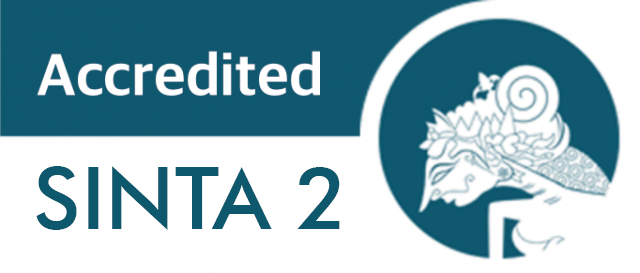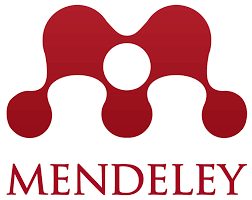Educational Honesty: The Main Philosophical Value in School
DOI:
https://doi.org/10.15408/tjems.v6i2.11769Keywords:
kejujuran pendidikan, educational honesty, philosophical values of honesty, concept of honesty education, nilai-nilai filosofis dari kejujuran, konsep pendidikan kejujuranAbstract
Abstract
This study aims at exploring the educational honesty that a school in Aceh has created to discover the fundamental principles and definitions of honesty education that schools have built up to promote integrity in the schools. Data collected through a qualitative approach, interview, observation, and documentation study. The results of this research showed that educational honesty could work well because it focused on universal, academic, and professional principles that established philosophical values. The definition of truth designed from the foundation level of schools, schools in general and taught in detail in the classroom. The concept of educational honesty is stronger because it has included in the Vision, Mission, Objectives, and School Programs. This research expected to offer a new idea of honesty education in schools.
Abstrak
Studi ini bertujuan untuk mengeksplorasi kejujuran pendidikan yang telah diciptakan oleh sebuah sekolah di Aceh untuk menemukan prinsip-prinsip dasar dan definisi pendidikan kejujuran yang telah dibangun oleh sekolah untuk meningkatkan integritas di sekolah-sekolah tersebut. Data dikumpulkan melalui pendekatan kualitatif, wawancara, observasi, dan studi dokumentasi. Hasil penelitian ini menunjukkan bahwa kejujuran pendidikan dapat bekerja dengan baik karena berfokus pada prinsip-prinsip universal, akademik, dan profesional yang menetapkan nilai-nilai filosofis. Definisi kebenaran dirancang dari tingkat dasar sekolah, sekolah pada umumnya dan diajarkan secara rinci di kelas. Konsep kejujuran pendidikan lebih kuat karena sudah termasuk dalam Visi, Misi, Tujuan, dan Program Sekolah. Penelitian ini diharapkan dapat menawarkan gagasan baru tentang pendidikan kejujuran di sekolah.
How to Cite: Suud, F. M., Sutrisno, Majid, A. (2019). Educational Honesty: The Main Philosophical Value in School. TARBIYA: Journal of Education in Muslim Society, 6(2), 141-154. doi:10.15408/tjems.v6i2. 11769.
References
Adhikasi, S. (2018). Beyond Culture: Helping International Students Avoid Plagiarism. Journal of International Students, 8(1), 375–388.
Aghababaei, N., Błachnio, A., Chiniforoushan, M., Tekke, M., & Mehrabadi, A. (2016). Honesty–humility and the HEXACO structure of religiosity and well-being. Current Psychology, 35(3), 421-426.
Ajzen, I. (1991). The theory of planned behavior. Organizational Behavior and Human Decision Processes, 50(2), 172–211.
Ajzen, I., & Fishen, M. (1980). Understanding Attitudes and Predicting Social Behavior. New Jersey: Prentice-Hall.
Allgaier, K., Zettler, I., Wagner, W., Püttmann, S., & Trautwein, U. (2015). Honesty-humility in school: Exploring main and interaction effects on secondary school students' antisocial and prosocial behavior. Learning and Individual Differences, 211–217.
Altenburger, M. (2017). The effect of injunctive social norms and dissent on budget reporting honesty. Journal of International Accounting Research, 16(2), 9–31.
Andersen, G. E., & Jorga, C. (2018). Ability and mobility: The relative influence of skills and social origin on social mobility Gøsta Esping-Andersen, Jorge Cimentada. Social Science Research.
Anita, E. K., & Long, W. (2012). A life without Lies: Can Livingmore Honesty Improve Health? APA Annual Convention. https://cbsphilly.files.wordpress.com/2012/08/ kelly-a-life-without-lies.pdf
Baedowi, A. (2005). Blueprint Sekolah Sukma Bangsa.
Baedowi, A. (2015). Manajemen Sekolah Efektif Pengalaman Sekolah Sukma Bangsa. Jakata: Pustaka Alvabet.
Baker, U., & Dershowitz, N. (2016). Honest computability and complexity. In Martin Davis on Computability, Computational Logic, and Mathematical Foundations. Springer, Cham, 151–173.
Barlow, A. (2017). The Triumph of the Lie: How Honesty and Morality Died in Right-Wing Politics.
Bashori, K. (2015). Pengembangan Kapasistas Guru: Dari Sekolah Sukma Bangsa Untuk Indonesia. Jakarta: Pustaka Alvabet.
Bhatia, S. (2018). Creating a Culture of Honesty and Integrity in Supply Chains. Asian Journal of Management Sciences & Education, 7(1).
Blue, P. R., Hu, J. & Zhou, X. (2018). Higher Status Honesty Is Worth More: The Effect of Social Status on Honesty Evaluation. Frontiers in Psychology, 9, 350.
Bureau, Julien S., & Mageau, G. A. (2014). Parental autonomy support and honesty: The mediating role of identification with the honesty value and perceived costs and benefits of honesty. Journal of Adolescence, 225.
Cameron, J. J., & Granger, S. (2018). Cameron, J. J., & Granger, S. (2018). Does self-esteem have an interpersonal imprint beyond self-reports? A meta-analysis of self-esteem and objective interpersonal indicators. Review, 1088868318756532. Personality and Social Psychology.
Corruption Perceptions Index. (2018, February 21). CORRUPTION PERCEPTIONS INDEX 2017 [https://www.transparency.org/news/feature/corruption_perceptions_index_2017].
Danielson, C. (2017). Assessment for learning—For teachers as well as students. The future of assessment. Routledge., 191–213.
Davidson, B. (2018). The Effects of Reciprocity and Self-Awareness on Honesty in Managerial Reporting: Social Value Orientation Matters. Journal of Management Accounting Research.
de Vries, R. E., & Van Gelder, J. L. (2015). Explaining workplace delinquency: The role of Honesty-Humility, ethical culture, and employee surveillance. Personality and Individual Differences, 86, 112–116.
Devine, C. A., & Chin, E. D. (2018). Integrity in nursing students: A concept analysis. Nurse education today, 60, 133-138.
Dimyati, D. (2016). Keteladanan dosen dan integrasi nilai-nilai moral dalam pembelajaran psikologi olahraga untuk membentuk karakter kepatuhan dan kejujuran mahasiswa. Jurnal Pembangunan Pendidikan: Fondasi Dan Aplikasi, 4(1), 15–23.
Faris, N., & Abdallah, M. (2018). Leadership in Islam Based on Primary Sources. In Leadership in Islam. Palgrave Macmillan, Cham., 9–25.
Fowers, B. (2005). Virtue and psychology: Pursuing excellence in ordinary practices. American Psychological Association.
Fronzentti, C., & Grippa, F. (2018). The Importance of Being Honest: Correlating Self-Report Accuracy and Network Centrality with Academic Performance. The Journal of Psychology, 152(5), 304–324.
Garcia, E. (2016). The Need to Address Non-Cognitive Skills in the Education Policy Agenda1. In Non-cognitive Skills and Factors in Educational Attainment. Sense Publishers Rotterdam, 31–64.
Gillath, O., Karantzas, G. C., & Lee, J. (2019). Attachment and social networks. Current Opinion in Psychology, 25, 21–25.
Hannekam, S. (2015). Career success of older workers: the influence of social skills and continuous learning ability. Journal of Management Development, 34(9), 1113–1133.
Hidayah, I. (2014). Reconstruction of Amanah concept in leadership ethics (historical studies of the emergence of the title al-Amin for Prophet Muhammad SAW). (Doctoral Dissertation, UIN Walisongo).
Hongwei, Y., Glanzer, P. L., Johnson, B. R., Sriram, R., & Moore, B. (2017). The association between religion and self-reported academic honesty among college students. Journal of Beliefs & Values, 38(1), 63–76.
Hugh-Jones, D. (2015). Honesty and beliefs about honesty in 15 countries. University of East Anglia Discussion Paper.
Iqbal, Z., & Mirakhor, A. (2017). Key Virtues of Business Ethics in Islam. In Ethical Dimensions of Islamic Finance. Palgrave Macmillan, Cham., 61–80.
Joshi, A. (2018). Why Honesty is the Best Policy. In Proceedings of the XXIII World Congress of Philosophy, 44, 41–46.
Kajonius, P. J., & Daderman, A. M. (2014). Exploring the relationship between honesty-humility, the big five, and liberal values in Swedish students. Europe’s Journal of Psychology, 10(1), 104-117.
Kelly&wang, (2012) A Life without Lies: Can Living More Honestly Improve Health? https://cbsphilly.files.wordpress.com/2012/08/kelly-a-life-without-lies.pdf
Kleinlogel, E. P., Dietz, J., & Antonakis, J. (2018). Lucky, Competent, or Just a Cheat? Interactive Effects of Honesty-Humility and Moral Cues on Cheating Behavior. Personality and Social Psychology Bulletin, 44(2), 158–172.
koepke, L., & Marten, J. K. (2018). The Relationship Between Honesty-Humility and Social Desirability: High-Stake Versus Low-Stake Situations.
Lopez-Valeiras, E., Gomez-Conde, J., & Lunkes, R. (2018). Employee reactions to the use of management control systems in hospitals: Motivation vs. threat. Gaceta Sanitaria, 32(2), 129–134.
Luyten, P., & Blatt, S. J. (2016). A hierarchical multiple-level approach to the assessment of interpersonal relatedness and self-definition: Implications for research, clinical practice, and DSM planning. Journal of Personality Assessment, 98(1), 5–13.
Matsuo, A., & Akita, T. (2018). A research about influences to piano players’ perception and behavior control in brushing up processes of music pieces under the condition of different reverberation time sonic fields. The Journal of the Acoustical Society of America, 143(3), 1895–1896.
McCabe, D. ., & Pavela, G. (2004). Ten (updated) principles of academic integrity: How faculty can foster student honesty. Change: The Magazine of Higher Learning, 36 (3), 10–15.
Miles, M. B., Huberman, A. M., & Saldana, J. (2013). Qualitative data analysis. Sage.
Moreno, K. A. (2018). Stem Educators’ Integration of Formative Assessment in Teaching and Lesson Design. (Doctoral Dissertation, College of Saint Elizabeth).
Muluk, S. (2017). School Culture Transformation Post Islamic Law Implementation in Aceh. Advanced Science Letters, 23(3), 2101–2104.
O’Connor’, R. C. (2017). Theory of planned behavior and parasuicide: An exploratory study. In Planned Behavior. Routledge, 19–32.
Petkari, E., & Ortiz, T. (2018). Towards Youth Happiness and Mental Health in the United Arab Emirates: The Path of Character Strengths in a Multicultural Population. Journal of Happiness Studies, 19(2), 333–350.
Poon, J. M., Briscoe, J. P., Abdul-Ghani, R., & Jones, E. A. (2015). Meaning and determinants of career success: a Malaysian perspective. Journal of Work and Organizational Psychology, 31(1).
Pradana, Q. A., & Lestari, S. (2016). Dinamika Psikologis Perilaku Kecurangan Akademis Pada Siswa Sekolah Menengah Kejuruan. (Doctoral Dissertation, Universitas Muhammadiyah Surakarta).
Ramadani, V., Dana, L. P., Ratten, V., & Tahiri, S. (2015). The context of Islamic entrepreneurship and business: Concept, principles, and perspectives. International Journal of Business and Globalisation, 15(3), 244–261.
Sari, T. K., & Sundari, S. H. (2016). Penanaman Karakter Kejujuran Dan Kepatuhan Pada Aturan Sosial Dalam Proses Pembelajaran Ppkn Di Smk Muhammadiyah 2 Surakarta Tahun 2015-2016. (Doctoral Dissertation, Universitas Muhammadiyah Surakarta).
Senge, P. M. (1991). The fifth discipline, the art, and practice of the learning organization. Performance+ Instruction, 30(5), 37.
Serambi,news. (2012, April 19). sma-sukma-pecat-11-siswa [http://aceh.tribunnews.com/ 2012/04/19/sma-sukma-pecat-11-siswa].
Simpson, D. (2016). Academic dishonesty: An international student perspective. Academic Perspectives in Higher Education., 2(1), 5.
Saleh, M., Kamal, H., & Abdullah, M. R. (2019). Implementing Values of Local Wisdom In Managing The Budgets of Rural Financing at Poringan Village in West Suli District of Luwu Regency. International Journal of Management & Entrepreneurship Research, 1(3), 124-131.
Sutrisno, & Suyatno. (2015). Pendidikan Islam di Era Modern. Jakarta: Prenamedia Group.
Suud, F. (2018). Kejujuran dalam perspektif psikologi Islam. Jurnal Psikologi Islam, 4(2), 121-134.
Suyanto, T. Z., Prasetyo, K., Isbandono, P., Gamaputra, G., & Purba, I. P. (2018). The study perception of social sciences and law faculty students for a hoax in social media. In Journal of Physics: Conference Series. IOP Publishing, 953(1), 012151.
Tang, T. L. P, Sutarso, T, Ansari, M. A, Lim, V. K, Teo, T. S, Arias-Galicia, & Vlerick, P. (2018). Monetary Intelligence and Behavioral Economics: The Enron Effect—Love of money, corporate ethical values, Corruption Perceptions Index (CPI), and dishonesty across 31 geopolitical entities. Journal of Business Ethics, 148(4), 919–937.
Thompson, L. W., Bagby, J. H., Sheet, J., & Trepinski, T. M. (2017). The cultural elements of academic honesty. Journal of International Students, 7(1), 136.
Torka, N. (2018). Honesty and genuine happiness.
Wells, D. D., & Molina, A. D. (2017). The Truth about Honesty. Journal of Public and Nonprofit Affairs, 3(3), 292–308.
Winardi, R. D., & Anggraeni, M. A. (2018). Academic Dishonesty Among Accounting Students: Some Indonesian Evidence. Jurnal Akuntansi Dan Keuangan Indonesia, 142–164.
Wolfersberger, M. (2018). Plagiarism and Academic Dishonesty. The TESOL Encyclopedia of English Language Teaching, 1–7.
Yoella Bereby, Meyer, & Shaul Shalvi. (2015). Deliberate honesty. Current Opinion in Psychology, 6, 195–198.
Znoj, H. (2017). Deep corruption in Indonesia: discourses, practices, histories. In Corruption and the Secret of Law. Routledge, 53–74.











